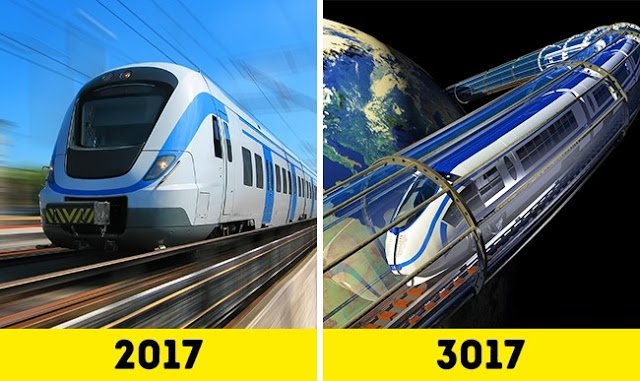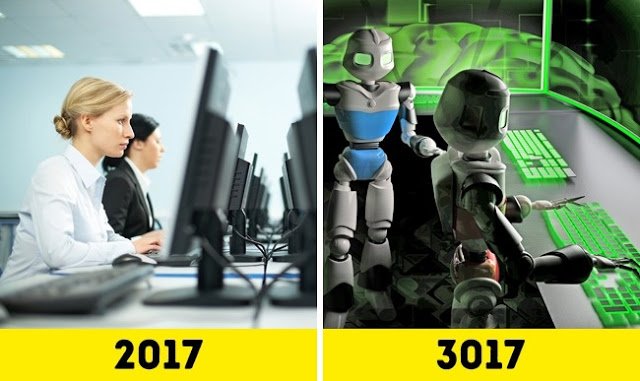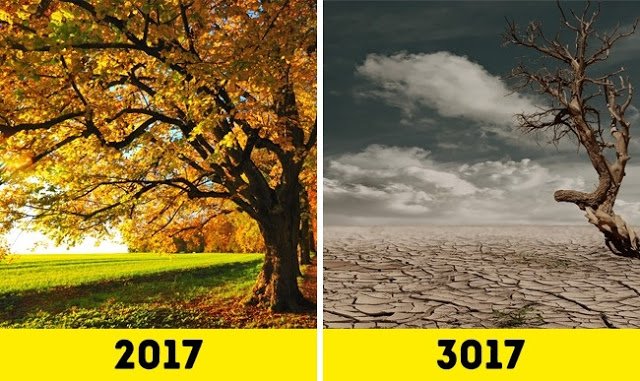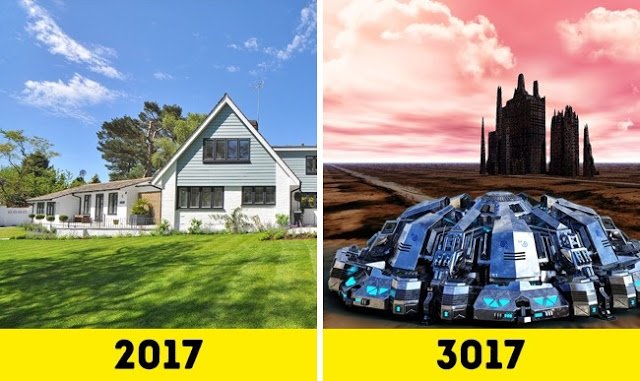One year ago in his speech at the University of Oxford Union, legendary Stephen Hawking announced that mankind would only live for another 1000 years here 9 things.will change
- People will live for 1,000 years
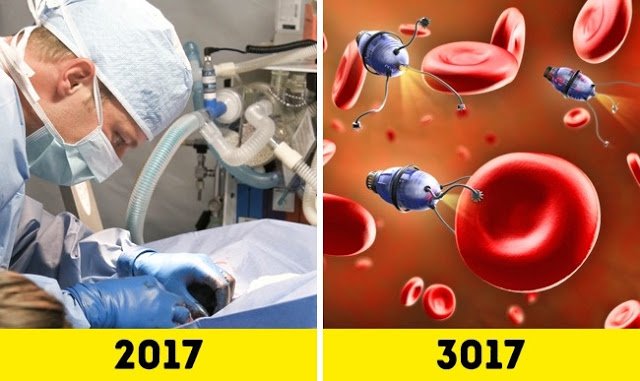
The billionaire is already investing millions of dollars in research on slowing down or stopping aging altogether. In 1,000 years, medical engineers can design treatments for each component that causes aging tissues. Gene editing tools are already here, which can potentially control our genes and make humans immune to disease.
- Humans will move to another planet.
In the space of 1,000 years from now, the only way to survive is to create new settlements in space. Spice and its axes are important "to enable humans to become a civilization that goes to space and multi-planet types by building a city of self-sufficiency on Mars." The company's founder, Elon Musk, hopes to be the first launch of spacecraft by 2022, with 4 flying to Mars by 2024.
See also: You will not believe what an American Leopard did
7. We will all look the same.
In his speculative intellectual experience, Dr Kwan assumed that in the distant future (more than 100,000 years from now) humans will develop larger forehead, bigger nose, larger eyes, and more pigmented skin. Scientists are already working on ways to modify genomes so that parents can choose the way their children will be seen.
6. There will be super smart computers speed.
In 2014, the supercomputer conducted the most accurate simulation of the human brain to date. In 1000 years from now, computers are expected to match the computational speed of the human brain and solve tasks that take a normal computer a decade to solve.
In the new century, quantum computers will be useful in developing more effective drugs and diagnostics, promoting space exploration, and helping cars lead themselves. At the same time, quantum computing may pose a real threat to the privacy and security of information.
See also:A Man Donates $ 86 Million Of Bitcoin
5. Humans will become Cyborg.
Instruments can actually enhance hearing and human sight. Scientists and engineers are developing electronic eyes to help visually. In 1000 years from now, integration with technology may be the only way for mankind to compete with artificial intelligence.
Integrating human minds with computers would create a superbrine that could perform complex equations and search the Internet just by thinking.
See also: He was waiting for a disturbing surprise
4. Mass extinction on the road.
Another mass extinction wiped dinosaurs from the face of the earth. A recent study revealed that the extinction rate of species in the 20th century was up to 100 times higher than normal without human effect. According to some scientists, the gradual contraction of the human population can help civilization to continue.
3. We will all speak of the same universal language.
The main factor likely to lead to a universal language is the simplification of languages. Linguists expect that 100 years from now 90% of languages will disappear due to migration, and those that remain will become simplified. The Babel Tower scenario is still not ruled out.
See also: She died of laughter! R.I.P
2. Buildings assemble and disassemble on driving
In the future, will likely be able to create virtual world around them, using the fog concept of utility. The idea of the fog utility of Dr. Hall represented a multiform material consisting of trillions of interrelated microscopic "robots" that can essentially create any shape.
1. Nanotechnology will solve the energy crisis and pollution.
1000 years from now, nanostructures will be able to clean up environmental damage, purify water and air, and seize energy from the sun. New materials will answer the need for more energy-efficient and energy-efficient storage technology.

The billionaire is already investing millions of dollars in research on slowing down or stopping aging altogether. In 1,000 years, medical engineers can design treatments for each component that causes aging tissues. Gene editing tools are already here, which can potentially control our genes and make humans immune to disease.
In the space of 1,000 years from now, the only way to survive is to create new settlements in space. Spice and its axes are important "to enable humans to become a civilization that goes to space and multi-planet types by building a city of self-sufficiency on Mars." The company's founder, Elon Musk, hopes to be the first launch of spacecraft by 2022, with 4 flying to Mars by 2024.
See also: You will not believe what an American Leopard did
7. We will all look the same.
In his speculative intellectual experience, Dr Kwan assumed that in the distant future (more than 100,000 years from now) humans will develop larger forehead, bigger nose, larger eyes, and more pigmented skin. Scientists are already working on ways to modify genomes so that parents can choose the way their children will be seen.
6. There will be super smart computers speed.
In 2014, the supercomputer conducted the most accurate simulation of the human brain to date. In 1000 years from now, computers are expected to match the computational speed of the human brain and solve tasks that take a normal computer a decade to solve.
In the new century, quantum computers will be useful in developing more effective drugs and diagnostics, promoting space exploration, and helping cars lead themselves. At the same time, quantum computing may pose a real threat to the privacy and security of information.
See also:A Man Donates $ 86 Million Of Bitcoin
5. Humans will become Cyborg.
Instruments can actually enhance hearing and human sight. Scientists and engineers are developing electronic eyes to help visually. In 1000 years from now, integration with technology may be the only way for mankind to compete with artificial intelligence.
Integrating human minds with computers would create a superbrine that could perform complex equations and search the Internet just by thinking.
See also: He was waiting for a disturbing surprise
4. Mass extinction on the road.
Another mass extinction wiped dinosaurs from the face of the earth. A recent study revealed that the extinction rate of species in the 20th century was up to 100 times higher than normal without human effect. According to some scientists, the gradual contraction of the human population can help civilization to continue.
3. We will all speak of the same universal language.
The main factor likely to lead to a universal language is the simplification of languages. Linguists expect that 100 years from now 90% of languages will disappear due to migration, and those that remain will become simplified. The Babel Tower scenario is still not ruled out.
See also: She died of laughter! R.I.P
2. Buildings assemble and disassemble on driving
In the future, will likely be able to create virtual world around them, using the fog concept of utility. The idea of the fog utility of Dr. Hall represented a multiform material consisting of trillions of interrelated microscopic "robots" that can essentially create any shape.
1. Nanotechnology will solve the energy crisis and pollution.
1000 years from now, nanostructures will be able to clean up environmental damage, purify water and air, and seize energy from the sun. New materials will answer the need for more energy-efficient and energy-efficient storage technology.
